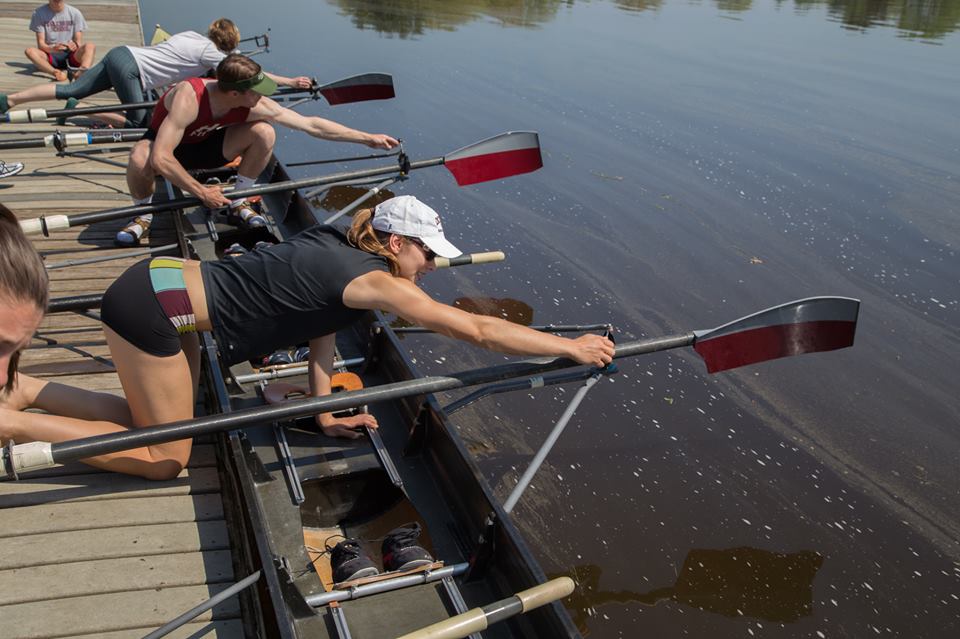|
Some of the most common college essay advice... is also the most terrible. I've been an education consultant and college counselor for eight years — at this point, I've heard it all... And it almost feels like a moral obligation to tell you that the advice people have been giving you is probably wrong. Here is some of the most commonly regurgitated, most terrible advice that's drilled into high school seniors: 1. Don't write about teen travel tours or your service trip. This tops the list, because it is the most terrible. Your first overseas experience is going to affect you profoundly. Unless you're the most narrow-minded little punk of all time, your travel or service trip will open your eyes to new perspectives, rock you with culture shock, cause physical and emotional discomfort, and all the other "cliched" things teens are told not to share in their college applications. To this I say: There are no bad essay topics. There are only bad essays. If all you want to talk about in your essay is experiencing new perspectives, culture shock, and physical/emotional discomfort... you will write a bad essay. Because literally everyone else on your trip (and everyone on all the thousands of others offered around the world) could write the exact same essay. Instead of being boring and writing the same essay as everyone else, think about what you did better or differently from your peers. Think about the ways in which you benefitted more from the same trip. For example, if it were me, I'd write about how, even though I was on a "group" trip, I spent most of my free time alone — but through that aloneness, I forged true cultural connections. Instead of spending my free time shopping or watching Youtube videos with the other Americans, I wandered the streets of Myanmar, where I met some young monks who invited me back to their orphanage to talk Katy Perry, lobsters, and other topics of interest over ping pong. I'd write about the woman I met from the State Department, who urged me to apply for a NISL-Y language scholarship after she overheard me negotiating in Burmese — "I've met dozens of summer abroad students, and none has ever put in the effort you did to learn such an obscure language." I'd write about the moral unease I felt about traveling in a country that was so clearly guilty of so many human rights violations — and how, upon my return home, I did an independent reading about human rights in the 21st century. All of these are specific examples that show something important about me — and that I got more out of the trip than my peers. The monks/orphanage show courage, independence, self-reliance, and intitative. The State Department woman shows initiative, a level of accomplishment in self-learning a new, obscure language, an openness to new experiences — and it connects my teen travel trip to the Next Big Thing (a language scholarship) in my life. The moral unease/independent reading shows that, unlike all the students who write that their summer abroad "changed their life," your life was ACTUALLY changed by the trip. You took something you observed, felt, and learned overseas, and continued studying it upon your return home. Here is another example of an overseas studies trip essay, which I shared in How to Write Epic and Unforgettable Service Trip or Teen Travel Tour Essays for College Admissions: Prompt 4: Describe a problem you've solved or a problem you'd like to solve. It can be an intellectual challenge, a research query, an ethical dilemma - anything that is of personal importance, no matter the scale. Explain its significance to you and what steps you took or could be taken to identify a solution. As you begin outlining and brainstorming for your Personal Statement or supplemental essays, make sure to emphasize personal qualities and decisions that helped you get more out of your trip than others got out of theirs. Need help connecting the dots? Check out my rates and services, then contact me. 2. BE qUiRkY!! If I had a whifflewonkle for every time I've heard this one... The idea behind this advice is good. It is good to inject your personality, character, and voice into the essay. You're not writing a scholarly article for your history teacher — you are writing a personal statement that should make the readers feel like they know you. That doesn't mean you have to pretend to be someone you're not. That doesn't mean you have to rewrite a perfectly amazing and compelling essay because someone told you to BE qUiRkY!!! If you are funny, or punny, or love a good 80s pop culture reference — GREAT! Write that! But if you've got a serious, straightforward, thoughtful, introspective personality, and you try to write a qUiRkY essay... it's going to come across as weird and inauthentic. Admissions officers are experts at detecting authenticity. That's why you hear stories about the top student at a high school with all the right grades and scores and extracurriculars getting rejected from Harvard, while a girl who was "only" in the top 10% of her class got accepted. The former checked all the boxes, without ever connecting them to any kind of authentic purpose or interest or reason. The latter did what she did for a reason, and that came across in her essays. The thing to remember is: There is a difference between UNIQUE and QUIRKY. If you are quirky, then write quirky essays. For sure. That's a big part of you, and you should let it shine. If you're not quirky, then find another way to be unique. Maybe what's unique about you is your original thought process. Maybe what's unique about you is your dedication to your research or political cause. Despite the terrible advice you might get about making your essay "quirkier," you really don't need to rewrite yourself or your story. BE YOU, and highlight the things that are most interesting and unique about your journey. Which, honestly, is hard for a lot of students. To you, it's not "unique" — it's just your life. That's why it might be helpful to brainstorm with a college essay tutor who has experience working with college admissions officers and conducting alumni interviews (you know — someone like me) to help you figure out the best approach for you. 3. Don't write about sports. Ugh — SO DUMB. If sports are a big part of your life, it would be weird not to write about them. There is no reason to think bassoon, chess, debate, and choir are legitimate interests, but basketball, volleyball, squash, fencing, or cross-country are not. Any activity you pour a significant amount of time, effort, and bodily fluids (blood, sweat and tears) into is something worth writing about. It comes down to the point I mentioned before: There are no bad essay topics. Only bad essays. I'll say it again: There are no bad essay topics. Only bad essays. One more time: There are no bad essay topics. Only bad essays. Okay. Hopefully, that's enough to counter all the terrible advice you've been getting. But, just as I wrote in the teen travel essay, it's important to write a sports essay that ONLY YOU could write. Even if you were standing on the free throw line with a tied score and only 2 seconds left in the game... Probably thousands of other applicants have had that or a similar experience. So think about what traits you have that contributed to your success in the sport — as a captain, as a team player, as someone who just loves to have fun — and write about those. Think about your unique thought process — what perspectives do you have from or about that sport that would surprise or delight a reader? For example, here's a brainstorm I shared in How to Write Successful Stanford Short Answer Essays: Talk about why you do this activity; how it has changed you; what about it you found the most meaningful So let's say I settled on Idea 1 -- Everything I Know About Life, I Learned From Basketball:
*** This essay says a lot about my personality... and even wisdom. Here's another sample: Briefly elaborate on one of your extracurricular activities or work experiences. (50-150 words) *** Remember: be creative. For example, here's how I might have approached my Personal Statement if I wanted to write about sports (from How to Write A TOTALLY EPIC Common App Essay Prompt 7 on the Topic of Your Choice): Share an essay on any topic of your choice. It can be one you've already written, one that responds to a different prompt, or one of your own design. *** From there, you'd talk about the determination and dedication it took to get good at the sport or activity, and what your goals are moving forward. These are all short answer supplemental essays. That doesn't mean you can only write short sports essays. Here is a sample essay I wrote for the University of California (UC) Personal Insight Questions, Prompt 1: Describe an example of your leadership experience in which you have positively influenced others, helped resolve disputes, or contributed to group efforts over time. *** I've also seen really compelling essays that connected sports to social issues. For example, I had a state-ranked golfer who wrote about elitism, and what kinds of rule changes would truly "level the playing field." I had a squash player who wrote about the interesting dynamic that comes from friendships between competitors. I had a JV basketball player who wrote about how, at 4'10, he always knew he had no shot at varsity -- he just wanted to be good enough that people would let him play pickup with them. All of these are more compelling than, "There I was, on the foul line, with all eyes on me..." Need help being compelling? Check out my rates and services, and contact me. 4. Don't write about volunteer work or community service. There is a reason so many people advise against this topic — it has a high potential for being boring. There's... not much interesting about pouring soup. And literally everyone who writes a service essay is going to say they used to take everything for granted until they saw how poor the disadvantaged are. Everyone but you. YOU are going to find a way to be unique. To do the same thing other people did, but get more out of it. And this starts with, as I wrote in Here's What Colleges REALLY Think About Volunteer Work, being proactive and showing growth within the organization. It looks weird if you spent hours every week doing the same thing... but you never grew or took on additional responsibilities. If this work is so meaningful to you, didn't you want to find other ways to give back — perhaps ways that leverage skills you've developed? Or wouldn't you want to use service to develop new skills? Here's another thing you need to remember, as I wrote in What Colleges REALLY Think About Volunteer Work: Never, ever write an essay about how such-and-such a volunteer experience "changed your life" if it didn't actually change your life. If you want to write about service but you haven't grown within the organization, then find ways you've grown because of the service in other organizations. Do a photography project that highlights the struggles of the homeless population in your community. Do an AP History project on the history of asylums and the future of housing the mentally ill. Start a collaboration between the local library and the local food bank. Otherwise, you're just writing an essay about doing something anyone could do. 5. Don't write about tragedies. Some of the best essays I've ever read were about tragedies. The key is to connect the tragedy to your coursework, extracurriculars, or other achievements. (And, obviously, don't be a downer, whiner, excuse-maker, or complainer.) Did you win the science fair after your dad died of a heart attack, because you needed to understand why an otherwise-healthy man would die so suddenly? Did your parents' divorce inspire you to read Marriage, a History: How Love Conquered Marriage, then write a comparative historical fiction play or story about how their marriage would have played out at different times in history? Did you uncover a passion for geology after a tragic fall left you in a wheelchair for two years? Write about that FOR SURE. Not only does it show resilience on your part, but it also connects meaning and purpose to the activities on your resume, so readers know that you're doing what you're doing for a reason, and not just to get into college. It's shocking how many high-achieving students have no intrinsic motivation. Show that you're different. Write about your tragedy. *** Have you encountered other bad advice in your college application process? Share it in the comments!
4 Comments
aman
3/27/2021 07:05:21 am
I wanna subscribe to your vlogs. Is it possible. If yes, please tell me the process
Reply
4/26/2023 06:08:54 pm
My grandfather encouraged me to learn how to type when I was a young boy (when all I really wanted to do was play baseball), as that is how he moved up the ranks of the United States Army to become a Lt. Colonel. Little did I know, I'd grow up to be an author, educator and university counselor serving students and professionals. That being said, anyone needing help writing essays, business letters, legal documents, or wanting to author a book can contact me ([email protected]) for assistance. ~ Paul F. Davis, author of 100 books, from https://EducationPro.us/
Reply
Leave a Reply. |
AuthorEva Glasrud completed her B.A. and M.A. at Stanford. She is now a college counselor and life coach for gifted youth. Archives
October 2022
Categories
All
|



 RSS Feed
RSS Feed